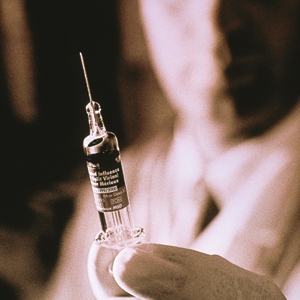NHS to invest extra £10m in vaccine scheme ahead of ‘challenging flu season’

NHS England is set to invest £10m into expanding the GP and pharmacy flu vaccine programme amid a raft of new measures to curb winter pressures this year.
In a letter sent yesterday to CCGs and trusts from Pauline Philip, national urgent and emergency care director at NHS England, NHS England announced the flu vaccine would be made available to care home workers free of charge under the expanded scheme.
The letter, seen by Pulse, says the investment ‘will supplement the existing responsibility of employers of these staff to ensure that they are vaccinated’.
It adds the extra funding will recognise ‘the vital role all staff play in helping our most vulnerable patients and how important it is they do not carry and pass on flu’.
NHS England has previously predicted that this year flu levels are expected to be high after Australia and New Zealand saw a ‘heavy’ flu season this year.
The letter says: ‘Were we to face similar flu levels we would clearly come under substantial additional pressure. Going full speed at flu vaccination is therefore an obvious “no regrets” move.’
Dr Richard Vautrey, chair of the BMA’s GP Committee, said the letter ‘is a further sign of the concern NHS leaders have about the impact a serious outbreak of influenza could have on an already overstretched general practice, community and hospital system’.
He added that further encouragement for patients to be immunised ‘is welcome’, adding that ‘practices are already working hard on protecting as many of their patients as possible’.
The letter also outlines what it describes as ‘the biggest expansion in the ED consultant trainee workforce ever’, with an increase in the number of people starting emergency medicine training to 400 a year for four years.
This is compared to 300 trainees starting this year and 225 in the years before.
Pulse has already reported that patients are having to wait 13 hours to be seen at A&E due to doctor shortages at A&E, while other hospitals are having to enlist GPs to help them reduce their waiting lists for referrals and others have sent patients out of county for certain specialties.
Meanwhile, Pulse reported today that the Government is in talks to stop walk-in patients attending A&Es, requiring them to be referred, in an effort to curb demand on emergency departments.
On the expansion of the ED trainee workforce Dr Chaand Nagpaul, BMA council chair, said: ‘Any steps to address the recruitment and retention crisis in emergency medicine are welcome, but with many existing training places going unfilled we need to address the root causes of the staffing crisis in our A&Es, in particular concerns around workload, stress and burnout.’
The letter also stated that figures released yesterday morning show a decrease in the number of days lost to delayed transfers of care from 187,851 in August 2016 to 180,065 in August 2017.
But it added that there are still ‘over 5,000 beds’ in the health service that need to be made available this winter.
A new ‘national emergency pressures panel’ is also being set up this month to oversee patient safety during the winter months.
The panel will be chaired by Sir Bruce Keogh, medical director at NHS England, and include ‘senior medical, nursing and other clinicians from the NHS, Public Health England, CQC and royal colleges’.
How secondary care services are already beginning to struggle
In Cambridgeshire, Addenbrooke’s sent a letter to GPs warning its medical decisions unit was ‘currently full and there are patients within the emergency department awaiting admission that cannot be placed into inpatient beds due to a lack of bed capacity’.
Meanwhile, NHS England has already launched a scheme to triage patients at the door of A&E, sending some to co-located primary care services.
Pulse has also reported that GPs in Lincolnshire are being asked to consider alternative providers outside of the county for non-urgent ear nose and throat (ENT), cardiology, neurology and dermatology services, while GPs in the north of the county have been asked to review referrals and take on patients to tackle a backlog of 30,000 patients waiting for treatment.
Visit Pulse Reference for details on 140 symptoms, including easily searchable symptoms and categories, offering you a free platform to check symptoms and receive potential diagnoses during consultations.









